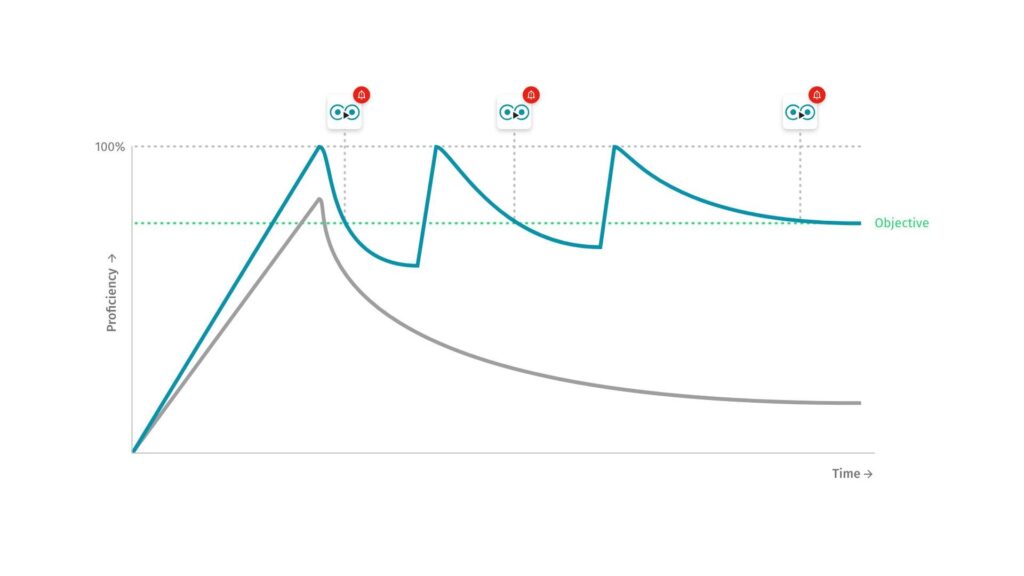Adaptive learning on a micro level
Blog / News | 04-11-22
Adaptive learning is a term used a lot, but its actual application varies enormously. As the word suggests, ‘adaptivity’ is all about adapting. When it comes to learning, adaptivity means adjusting to the learner. You can adjust the level, pace, content, and medium of learning. While adaptive learning is often focused on catering to learners who struggle, it is also smart to adapt a learning process to learners who are finding it very easy.
Oftentimes, adaptive learning is executed at a meso level. Before a course or training, learners take a diagnostic test and get a personalized learning path based on the results. They can then follow some training courses that correspond with the results of the test. This might sound useful, but it is actually quite ineffective. Here’s why:
- First of all, these tests hardly give you any insights into someone’s proficiency level. A test is just a snapshot of someone’s knowledge. It usually just reflects a temporary peak of knowledge. Plus, you might want to take into consideration that someone might have guessed some answers right.
- Secondly, if you stop adaptivity at a test at the very beginning of a learning program, then what comes after? Classroom trainings, books, PDFs, e-learning modules? Notice that these methods are quite traditional and don’t require much effort. You can easily click through e-learning or sit out a lecture or webinar. Why do that when there are more innovating learning methods that are proven to be much more effective?
- Lastly, how would you know whether someone truly understands the information? How do you know if someone a) has read the book, b) understands the information, and c) knows how to apply it? You want to get more insight into true proficiency levels and how to adjust to that.You can read more about adaptive learning and in what ways it can be applied, in the article ‘Adjust to adaptive learning’.
Micro-adaptivity
At Drillster, we think adaptive learning can be done smarter, better, more thoroughly, and most importantly on a micro level. Whereas we do offer a diagnostic test, we also apply adaptive learning at the micro level to make learning more efficient and truly personalized for every individual.
Effective learning
The more adaptivity, the better. We apply this in our algorithm in various ways, both in the short and long term. Drillster is assessment-based, meaning learners learn by answering questions. With every question answered, the algorithm learns something about the person: was the answer right or wrong, how often does this person get answers to questions (variants) about this knowledge element right or wrong, and when did this person last do the drill? Someone may get an answer right without truly mastering the knowledge. So, the chances of guessing correctly are factored in, and learners get multiple questions about each knowledge element.
Efficient retention
All this information is used to select the next question, determine when someone has reached the right knowledge level, and detect when knowledge has dropped below the required level. After all, knowledge can be forgotten rather quickly. Based on the results, the algorithm calculates when it is time for someone to work on getting their knowledge level back up. They will then get a notification asking them to do the drill again. The questions they then get will focus mainly on the material struggled with previously. Drillster also checks whether the material that the learner found easy is still present in their memory. If it turns out that the knowledge is becoming increasingly well anchored, the interval when someone is prompted to practice again will gradually become longer. This all will lead to continuous proficiency, even in the long term.
Continuous proficiency
Curious about the Drillster way of learning? Let’s have a chat!

Niels van Wijk
Email: niels@drillster.com
Phone: +31627597477

